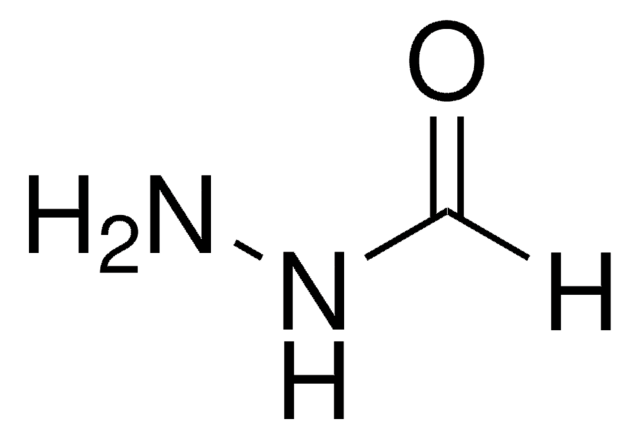38950
Dimethylamine solution
purum, 33% in absolute ethanol (~5.6 M)
Synonym(s):
N,N-Dimethylamine
About This Item
Recommended Products
grade
purum
Quality Level
form
liquid
concentration
32-34% (titration)
33% in absolute ethanol (~5.6 M)
density
0.76 g/cm3
functional group
amine
SMILES string
CNC
InChI
1S/C2H7N/c1-3-2/h3H,1-2H3
InChI key
ROSDSFDQCJNGOL-UHFFFAOYSA-N
Looking for similar products? Visit Product Comparison Guide
General description
Application
Signal Word
Danger
Hazard Statements
Precautionary Statements
Hazard Classifications
Acute Tox. 4 Inhalation - Aquatic Chronic 3 - Eye Dam. 1 - Flam. Liq. 2 - Skin Corr. 1B - STOT SE 3
Target Organs
Respiratory system
Storage Class Code
3 - Flammable liquids
WGK
WGK 3
Flash Point(F)
3.2 °F - closed cup
Flash Point(C)
-16 °C - closed cup
Personal Protective Equipment
Regulatory Listings
Regulatory Listings are mainly provided for chemical products. Only limited information can be provided here for non-chemical products. No entry means none of the components are listed. It is the user’s obligation to ensure the safe and legal use of the product.
PRTR
Class I Designated Chemical Substances
FSL
Group 4: Flammable liquids
Alcohols
Hazardous rank II
ISHL Indicated Name
Substances Subject to be Indicated Names
ISHL Notified Names
Substances Subject to be Notified Names
JAN Code
38950-250ML-F:4548173939421
38950-1L-F:4548173939414
38950-INTR-F:
38950-VAR-F:
38950-BULK-F:
Choose from one of the most recent versions:
Already Own This Product?
Find documentation for the products that you have recently purchased in the Document Library.
Customers Also Viewed
Our team of scientists has experience in all areas of research including Life Science, Material Science, Chemical Synthesis, Chromatography, Analytical and many others.
Contact Technical Service










